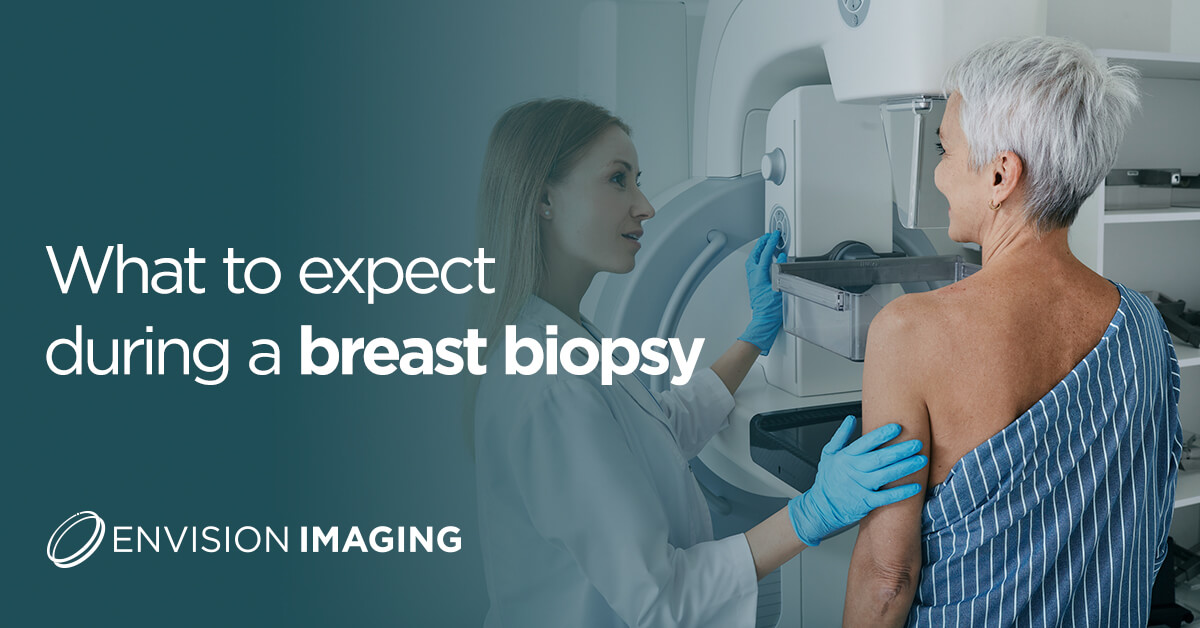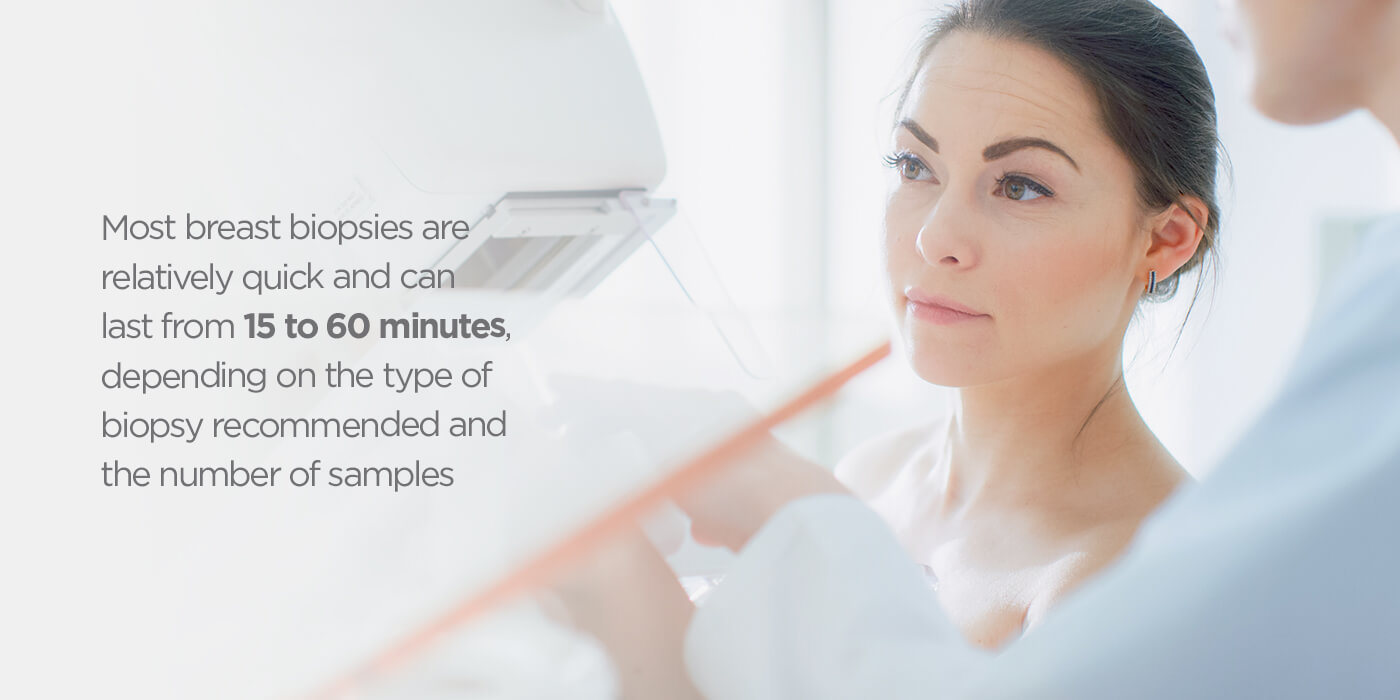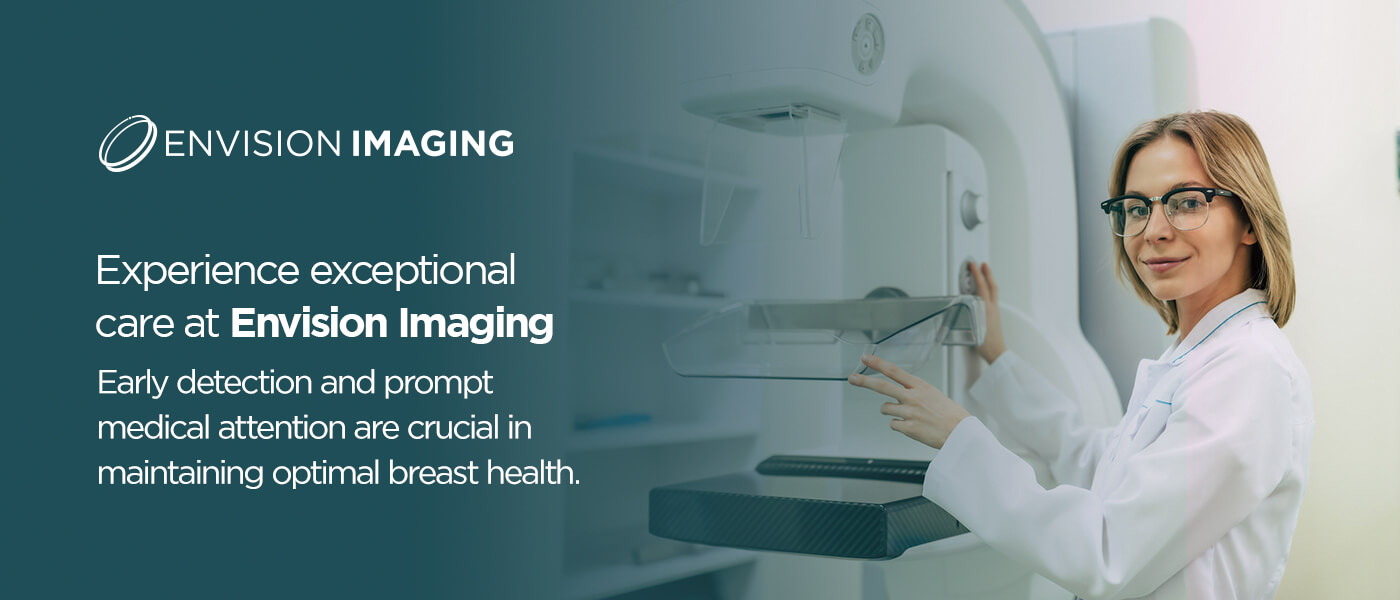What to expect during a breast biopsy
We understand that undergoing a breast biopsy can be a nerve-wracking and uncertain experience. That’s why we’re here to provide essential information and support, helping you navigate this procedure confidently and clearly.
A breast biopsy is a diagnostic procedure performed to investigate any abnormalities or concerns in breast tissue. It determines whether a breast abnormality is benign (noncancerous) or malignant (cancerous). Healthcare professionals can then analyze the abnormality under a microscope to determine a diagnosis.
Why do I need a breast biopsy?
Breast biopsies are typically recommended when an imaging test, such as a mammogram, ultrasound or MRI, detects a suspicious area in the breast. These imaging techniques play a vital role in guiding the biopsy procedure.
Healthcare providers can accurately target the suspicious area during the biopsy procedure, minimizing invasiveness and ensuring optimal sample collection. Not all breast abnormalities detected on imaging require a biopsy, and 80% of women who have a breast biopsy do not have breast cancer.
How can I prepare for the biopsy?
Work closely with your healthcare provider to schedule the biopsy conveniently. They will consider factors such as your menstrual cycle, if applicable, and any medications you are taking. Talk with your healthcare provider about the following before the procedure:
- Concerns and anxiety: Do not hesitate to voice any fears or concerns. Your healthcare provider is there to support you and can provide valuable information and reassurance to alleviate your anxieties about the procedure.
- Instructions for fasting or medications: Your healthcare provider may provide specific instructions regarding fasting before the procedure. Follow these guidelines closely to ensure accurate results and minimize any potential complications.
- Clothing and comfort: Wear comfortable, loose-fitting clothing on the day of the biopsy. This will allow easy access to the biopsy site and ensure your comfort during the procedure. Avoid wearing jewelry or accessories that may interfere with the process.
What to expect from a breast biopsy
Throughout the procedure, the healthcare team will prioritize your comfort and well-being, ensuring you are informed and involved in every step. If you experience significant discomfort or have concerns, do not hesitate to communicate with your healthcare provider.
Here, we’ll walk you through the typical steps involved in a breast biopsy:
- Arrival and pre-procedure preparation: On the day of the biopsy, you will be greeted by the medical staff, who will guide you through the process.
- Local anesthesia administration: A local anesthetic will be administered to numb the biopsy site before the biopsy begins. This helps minimize any discomfort or pain during the procedure.
- Biopsy technique: Depending on the type of biopsy recommended, the provider will proceed with the chosen method. Needle biopsies, such as Fine Needle Aspiration (FNA) biopsies or core needle biopsies, involve using a thin needle to extract tissue samples from the identified area. Surgical biopsies involve removing a larger portion or the entire abnormal area through a small surgical incision.
- Imaging guidance: In many cases, imaging techniques like mammography, ultrasound or magnetic resonance imaging (MRI) will be utilized during the biopsy to accurately guide the needle or surgical instrument to the targeted area.
- Sample collection: The healthcare provider will obtain tissue samples from the identified area using the selected biopsy method. Once the tissue samples are collected, they will be properly labeled and sent to the laboratory for analysis.
How painful is a breast biopsy?
While discomfort during a breast biopsy is minimal, individual experiences may differ. Factors such as the location of the biopsy site, the complexity of the procedure and personal pain sensitivity can influence the level of discomfort.
Here’s what you can expect in terms of pain during the procedure:
- Local anesthesia: The anesthesia is typically injected using a small needle and may cause a brief sting or pinch sensation. However, the numbing effect quickly reduces potential pain or discomfort.
- Sensations during the procedure: During the biopsy, you may feel pressure or a pushing sensation as the healthcare provider guides the biopsy needle or performs the surgical technique.
- After the procedure: Following the biopsy, you may experience some soreness at the biopsy site. This is normal and can be managed with over-the-counter pain medications as your healthcare provider recommends. However, severe pain or excessive swelling should be promptly reported to your healthcare team.
How long does a breast biopsy take?
While the time estimates provided here can give you a general idea, remember that your healthcare provider will be able to give you a more accurate timeline based on your specific case. Most breast biopsies are relatively quick and can last from 15 to 60 minutes, depending on the type of biopsy recommended and the number of samples needed.
Are there any risks or potential complications associated with a breast biopsy?
While breast biopsies are generally safe, like any medical procedure, some risks are involved. These can include bleeding, infection, bruising or, rarely, damage to surrounding structures. Your healthcare provider will discuss the potential risks and complications with you before the procedure, and they will take steps to minimize these risks.
What to expect post-biopsy
Remember, every individual’s recovery process is unique. It’s important to closely follow the post-biopsy care instructions provided by your healthcare provider and to reach out to them if you have any concerns or questions during the recovery period.
Here’s what you can expect in terms of post-biopsy care and recovery:
- Immediate post-biopsy care: The healthcare provider will apply a bandage or dressing to the biopsy site following the biopsy procedure. They will provide you with specific instructions on how to care for the site, including when and how to change the dressing.
- Pain management: It is normal to experience some soreness, tenderness or mild discomfort at the biopsy site for a few days following the procedure. Over-the-counter pain medications can be taken as directed by your healthcare provider to help manage any discomfort. Avoid taking aspirin unless specifically instructed, as it may increase the risk of bleeding.
- Physical activities: Most individuals can resume regular activities within a day or two after a needle biopsy. Surgical biopsies may require a slightly longer recovery, with limited activities for a few days.
- Monitoring the biopsy site: Keep a close eye on the site for any signs of infection. If you notice any redness or swelling, contact your healthcare provider promptly for further evaluation.
Can I sleep on my side after a breast biopsy?
In the immediate hours following the biopsy, avoid sleeping on the side of the biopsy site. This is to minimize pressure and potential discomfort at the site and prevent any disruption to the healing process. It is advisable to sleep on your back or in a slightly elevated position using pillows to support and reduce strain on the biopsy area.
As the days pass and the biopsy site begins to heal, you may gradually resume sleeping on your side if it feels comfortable. If sleeping on your side causes discomfort, continue sleeping on your back or in a position that provides the most comfort.
How long will I wait for my breast biopsy results?
In most cases, the final biopsy results may take a few days to a week. The tissue samples obtained during the biopsy will be sent to a laboratory for analysis by pathologists specializing in breast tissue. Once the results are available, your healthcare provider will discuss them during a follow-up appointment.
Can I drive myself home after the biopsy?
Most individuals can drive home after a breast biopsy, especially if a local anesthetic is used. However, if you receive sedation or anesthesia during a surgical biopsy, it is recommended to arrange for someone to accompany you and drive you home.
Experience exceptional care at Envision Imaging
At Envision Imaging, we understand the importance of accurate and timely diagnostic imaging in providing comprehensive healthcare. If you require a breast biopsy or any other imaging services, our team of experienced professionals is here to support you every step of the way.
Early detection and prompt medical attention are crucial in maintaining optimal breast health. By seeking professional help and undergoing necessary imaging procedures, you are taking a proactive measure toward your overall well-being.
Browse our locations to request your next diagnostic imaging appointment. Our world-class facilities, compassionate care and accurate results ensure a pleasant and reliable experience.
Don’t hesitate — request your breast biopsy with Envision Imaging today. Your health is our priority.




